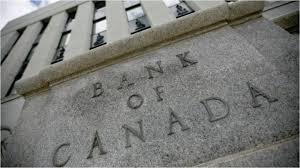The Bank of Canada (BoC), today, announced a 1.0% increase in its Key Overnight Lending rate. This was 0.25% higher than the 0.75% increase that the market was expecting. This is the largest increase that BoC has made since 1998. The Prime interest rate with major Canadian financial institutions will likely increase from 3.7% to 4.7%. So what does this mean?
– The BoC wants to rein in inflation, that is the single biggest reason they have become very hawkish on interest rates. They want spending to slow so that the demand for goods and services decreases and thus price increases slow or stop. The BoC said: “…domestic price pressures from excess demand are becoming more prominent. More than half of the components that make up the CPI are now rising by more than 5%. With this broadening of price pressures, the Bank’s core measures of inflation have moved up to between 3.9% and 5.4%. Also, surveys indicate more consumers and businesses are expecting inflation to be higher for longer, raising the risk that elevated inflation becomes entrenched in price- and wage-setting,”. The risk of the drastic rate increases thus far in 2022 is whether the economy will slow too much too quickly and end up in a recession. Whether we are in a recession already or a recession is coming is currently debated by many economic and investing experts. The widely accepted definition of a recession is two consecutive quarters of economic decline – typically measured by the percentage change in GDP of a country.
– This will directly slow down the housing market but will have a lesser effect on general consumer spending. Why? Because mortgage rates have and will increase, but consumer credit card interest rates will likely stay at approximately 20%+, other than specialty cards with lower rates. Essentially, consumers who are used to using their credit cards and carrying balances on them will continue to make similar monthly payments to service them and continue shopping accordingly. Meanwhile, new homeowners seeking mortgages will be immediately restricted and lowered in the price range of a home that they can afford. True savers and retired consumers will likely begin to save more and slow spending, but the speed of this is yet to be determined, and of course, spending on necessities will not stop.
– Further risk lies in the fact that economies around the world are in recovery from pandemic years 2020 and 2021. Hopefully the drastic central bank rate increases thus far in 2022 do not mute this recovery. The Canadian unemployment rate is running at the lowest rate seen – below 5% but expect this to change as higher interest rates sink in, and purchasing demand slows.
In summary, Mortgage Logic believes that the quick and drastic rate increases thus far this year by the BoC are too much too fast. The economy has a lot to work out post-pandemic and too much interest rate tampering by the BoC may slingshot back on consumers and suppliers accordingly.

